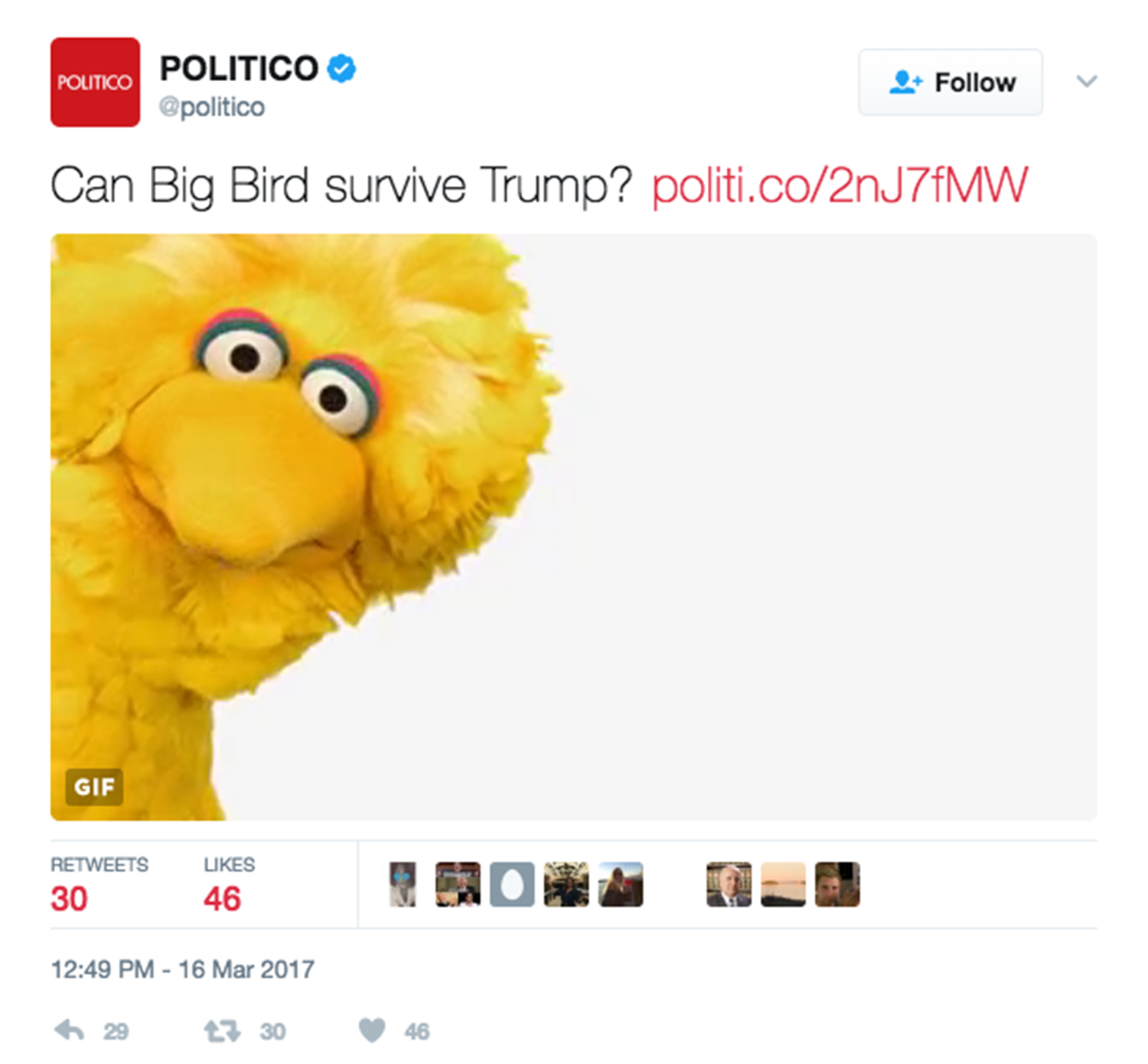One of the more ridiculous charges leveled against former Massachusetts Gov. Mitt Romney during the 2012 election was that his proposed cuts to publicly funded entities, including the Public Broadcasting System, would lead to the demise of “Sesame Street.”
The attack was bunk because it ignored the reality that “Sesame Street” is an insanely popular and profitable television show. It would have no trouble finding a home elsewhere if PBS had its funding cut.
On Tuesday, after President Trump unveiled his budget proposal, newsrooms hummed again stories about the GOP’s supposed efforts to kill off Big Bird
However, the difference today is that a privately owned network now has the exclusive rights to the show. The program’s parent company, Sesame Workshop, struck a deal with HBO in 2015 that gave the private cable network first-run episodes. PBS is still allowed to air the reruns.
In other words, “Sesame Street” is alive and well in the private sector. Budget cuts will not lead to the show’s total cancellation, but you’d hardly know that from reading news reports Thursday afternoon.
“Trump’s Budget Won’t Kill Big Bird, But It May Make Him Endangered,” read a headline from Forbes.
The Washington Post ran an article titled, “The end of Big Bird? He’s survived the budget ax many times before.”
“Can Big Bird survive Trump?” read the title to a Politico report.

From the Daily Caller: “Trump’s Budget Would Finally Fire Big Bird, Defund NPR.”
From the Daily Mail: “Save Sesame Street! Public broadcasting funder says Trump plan to ax its federal cash would ‘devastate’ programs for children and American history.”
From even the Washington Examiner: “Trump will try to cut Big Bird loose.”
Trump’s budget proposal does indeed cut federal funding for the Corporation for Public Broadcasting, a media conglomerate that includes NPR, PBS and an estimated 1,500 affiliated stations. The cuts are expected to save about $485 million.
However, buried in nearly every story published Thursday about Big Bird’s supposedly looming demise is the fact that the kid’s show is being produced for HBO.
Politico, for example, waited seven paragraphs before dropping this aside on readers: “(While Sesame Street is now in a deal with HBO, its episodes are still made available for free through PBS — an option that would conceivably be eliminated if PBS were unable to survive.)”
The Post included the details 14 paragraphs into the story:
Over the years, people in public media have argued that many of these communities would lose irreplaceable educational and local news programs without federal support. They have also mobilized the public at times, such as a 2011 lobbying campaign that brought Big Bird to the halls of Congress (that bit of theater may have been blunted by a 2015 deal between “Sesame Street’s” parent company, Sesame Workshop, and HBO, in which Sesame produces first-run episodes for the pay-TV network; PBS gets the reruns).
Others didn’t even mention the 2015 HBO deal.
Sesame Street will continue to survive at a privately held cable network, regardless of whether Trump gets his PBS cuts. The successful and insanely lucrative kid’s show will go on producing content, and HBO will reap the benefits. Sesame Street reruns on PBS may or may not go by the wayside, but that’s obviously not the same as the show disappearing altogether.
It was a neat trick in 2012, claiming budget cuts would do away with the beloved puppet program. That line doesn’t work so well today now that the private sector is involved.

